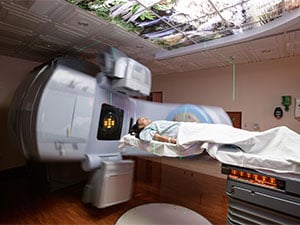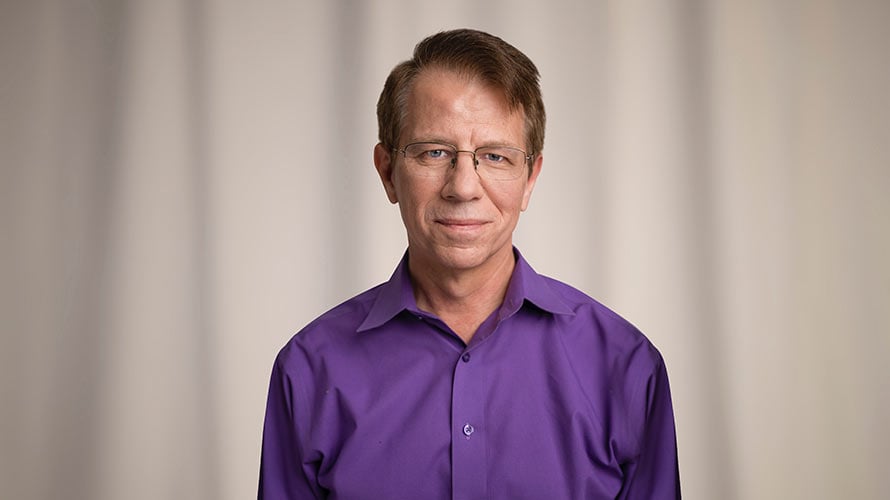Non-Hodgkin Lymphoma Treatment Information

Non-Hodgkin lymphoma is a type of blood cancer that occurs when specialized white blood cells in the lymphatic system (lymphocytes) undergo mutations that cause them to grow and divide uncontrollably. If left untreated, the abnormal lymphocytes can build up, bind together and form tumors. Additionally, the excess cancerous cells may begin to crowd out healthy lymphocytes—which produce antibodies to help the body fight off bacteria, viruses and other harmful invaders—and ultimately weaken the body’s immune system, leaving the body more susceptible to infection.
Researchers have identified at least 86 different types of non-Hodgkin lymphoma. Each type can be broadly classified into one of two groups: B-cell lymphomas, which develop from abnormal B-cell lymphocytes, or T-cell lymphomas, which develop from abnormal T-cell lymphocytes or natural killer (NK) lymphocytes. All types of non-Hodgkin lymphoma can be further categorized as either slow-growing (indolent) or fast-growing (aggressive).
What causes non-Hodgkin lymphoma?
Scientists continue to explore the possible ways in which non-Hodgkin lymphoma develops. In most cases, the precise cause is unknown. Experts believe that a weakened immune system may contribute to its development. Therefore, individuals who take immunosuppressants or have a human immunodeficiency virus (HIV) infection may be at heightened risk and should be especially vigilant for possible warning signs, such as painless lumps under the skin caused by enlarged lymph nodes.
What are the symptoms of non-Hodgkin lymphoma?
Because non-Hodgkin lymphoma is a blood cancer that affects the lymphatic system, which extends throughout the body, its symptoms can vary depending on the specific parts of the body affected. In addition to enlarged lymph nodes, possible signs include:
- Fever, chills and night sweats
- Unintended weight loss
- Loss of appetite
- Pain and swelling in the belly
- A sensation of fullness after consuming only a small amount of food
- Pain or pressure in the chest
- Persistent coughing and shortness of breath
- Frequent, severe or prolonged infections
- Easy bleeding and bruising
- Overwhelming fatigue
How is non-Hodgkin lymphoma diagnosed?
In most cases, the diagnostic process for non-Hodgkin lymphoma begins with a discussion of the symptoms, a review of the patient’s medical history and a physical examination. If other, more common conditions can be ruled out, a physician will typically order blood work, a urinalysis and imaging scans. If the results suggest the presence of cancer, the physician will likely follow up with one or more advanced diagnostic tests, such as:
- A lymph node biopsy
- A bone marrow biopsy
- A lumbar puncture (spinal tap)
- An echocardiogram
- A pulmonary function test
After confirming a diagnosis of non-Hodgkin lymphoma, the physician will usually order additional testing to identify its type, which is an important consideration when planning treatment. Some options include:
- Immunohistochemistry
- Cytogenetic testing
- Fluorescent in situ hybridization (FISH) testing
- Polymerase chain reaction (PCR) testing

How is non-Hodgkin lymphoma treated?
Treatment for non-Hodgkin lymphoma can vary depending on its type and stage and other factors. Some options include:
- Chemotherapy – After being administered intravenously or taken orally, powerful cancer-fighting drugs can enter the bloodstream, then travel throughout the body. Because chemotherapy can reach and destroy widespread cancer cells, it is the main form of treatment for non-Hodgkin lymphoma. Chemo can be effective when used alone or in combination with other therapies.
- Radiation therapy – High-powered energy beams, such as X-rays or protons, are precisely delivered to a cancerous lymph node or another affected area of the body. Radiation therapy may be considered as a standalone treatment for indolent non-Hodgkin lymphoma, or it may be used after chemotherapy to help destroy any residual cancer cells.
- Targeted therapy – As researchers learn more about the abnormal changes that cause lymphocytes to grow uncontrollably, new drugs are being developed to specifically target those changes. One example is a proteasome inhibitor, which works by stopping the enzyme complexes (proteasomes) in cells from breaking down the proteins that normally keep cell division under control.
- Immunotherapy – To enhance the immune system’s natural cancer-fighting capabilities, man-made antibodies (monoclonal antibodies) are designed and administered to attack a specific target, such as a unique substance found on the surface of a cancerous lymphocyte.
- Stem cell transplantation – Healthy stem cells from a matching donor are infused into the patient’s body to replace the abnormal blood cells that were destroyed during radiation therapy or chemotherapy.
Moffitt Cancer Center’s approach
Non-Hodgkin lymphoma is a diverse and complex malignancy, and specialized treatment is necessary to ensure the best possible outcome and quality of life. The renowned Malignant Hematology Program at Moffitt Cancer Center is home to a multispecialty team that focuses exclusively on the diagnosis and treatment of Hodgkin and non-Hodgkin lymphoma. Working collaboratively, we develop an individualized treatment plan for each patient, then closely monitor his or her progress and make treatment adjustments as necessary. In a single location, our patients have access to all aspects of lymphoma diagnosis, treatment and support, including promising new therapies available only through our robust clinical trials program.
At Moffitt, we remain committed to exploring new and better ways to detect and treat lymphoma. In recognition of our extensive research efforts and groundbreaking achievements, the National Cancer Center designated Moffitt a Comprehensive Cancer Center, and we are the only cancer center based in Florida to have received this prestigious distinction.
If you would like more information about non-Hodgkin lymphoma, you are welcome to request an appointment with an expert in the Malignant Hematology Program at Moffitt Cancer Center. To do so, please call 1-888-663-3488 or complete our new patient registration form online. As our patient, you can feel confident that we will begin planning your personalized treatment right away—even before you walk through our doors.
Helpful Links:



